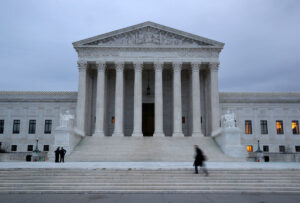Idaho Enacts Law Shielding Medical Professionals’ Ethical Choices
A new legal provision in Idaho is set to transform the landscape for medical professionals who face ethical dilemmas in their practice. The state has introduced a law granting healthcare providers the right to decline participation in procedures that conflict with their personal beliefs.
Idaho’s Republican Governor, Brad Little, has officially signed House Bill 59, known as the Medical Ethics Defense Act, into law. The legislative journey of this bill saw it pass with a 58-11 vote in the state’s House of Representatives and a 28-6 vote in the Senate, both predominantly governed by Republicans.
Partisan lines were clearly drawn during the voting process, with support mainly from Republicans, although two Republican House members sided with Democrats in opposition.
The Medical Ethics Defense Act articulates that no healthcare professional should be obligated to engage in or finance any medical practice that contradicts their conscience, whether it stems from religious, moral, or ethical beliefs. This law protects them from discrimination or legal liability when exercising such rights.
A significant aspect of the new law is the protection it offers to religious healthcare entities, allowing them to make decisions regarding employment and privileges in alignment with their religious convictions. If individuals feel their rights under this law are violated, they can pursue civil legal action.
The enactment of this law has been praised by Alliance Defending Freedom, a conservative legal organization advocating for religious liberties. In a statement, Senior Counsel Greg Chafuen emphasized, “Patients are best served by healthcare professionals who are free to act consistent with their oath to ‘do no harm.’” He also highlighted the issue of medical professionals facing punitive actions for abstaining from procedures they deem harmful.
Chafuen noted the importance of this legislation in ensuring that healthcare workers are not coerced into procedures that conflict with their beliefs, which has been a contentious issue in several states.
The past experiences of medical professionals like Robyn Strader, and others such as Paige Casey and Suzanne Schuler, who were dismissed for not complying with procedures against their religious beliefs, underscore the necessity of such protections.
In a contrasting case, a federal judge in Maryland ruled in 2023 that a Catholic hospital breached the Affordable Care Act by denying a hysterectomy to a transgender individual, illustrating the complex legal landscape surrounding healthcare and religious beliefs.
Idaho’s recent legislative actions extend beyond healthcare. Last year, the state passed House Bill 538, safeguarding public employees and students from being compelled to use pronouns not matching an individual’s biological sex.
According to a report by the Center for Religion, Culture and Democracy, other states with similar protections include Alabama, Arkansas, Florida, Illinois, Mississippi, Montana, New Mexico, Ohio, South Carolina, and Washington.
This article was originally written by www.christianpost.com






